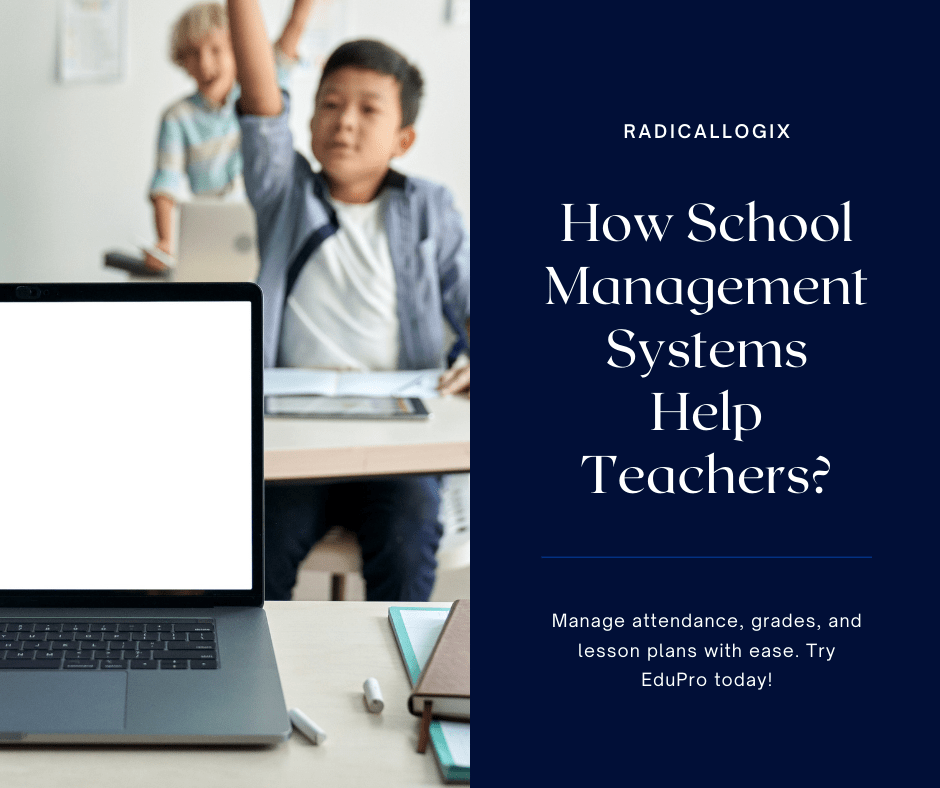In the ever-evolving landscape of education, technology plays a pivotal role in streamlining administrative tasks, enhancing communication, and fostering collaboration. One such technological innovation that has revolutionized the way schools operate is the School Management System Software, often referred to as school ERP (Enterprise Resource Planning) software. In India, where the education sector is vast and diverse, the adoption of school ERP software has become increasingly prevalent, offering teachers a myriad of benefits and facilitating their roles in the classroom and beyond.
Understanding School ERP Software: A Comprehensive Solution
School ERP software is a comprehensive solution that integrates various administrative, academic, and communication functions into a single platform. From managing student records and attendance to facilitating parent-teacher communication and automating fee management, school ERP software streamlines countless processes, freeing up valuable time and resources for educators.
Streamlining Administrative Tasks: Enhancing Efficiency
One of the most significant advantages of school ERP software for teachers is its ability to streamline administrative tasks. Traditionally, teachers spent a significant portion of their time on paperwork, such as recording attendance, grading assignments, and generating reports. With school ERP software, these tasks can be automated, allowing teachers to focus more on what they do best: teaching.
For example, instead of manually taking attendance in each class and then entering the data into a spreadsheet, teachers can simply mark attendance digitally using the school ERP software. This not only saves time but also reduces the likelihood of errors and discrepancies.
Similarly, grading assignments and generating progress reports can be done more efficiently through the software’s grading module. Teachers can input grades, provide feedback, and generate comprehensive reports with just a few clicks, enabling them to assess student performance more effectively and identify areas for improvement.
Facilitating Communication and Collaboration: Strengthening Parent-Teacher Partnerships
Effective communication between teachers, parents, and students is essential for student success. School ERP software facilitates communication by providing a centralized platform where teachers can easily communicate with parents regarding their child’s progress, upcoming events, and important announcements.
Through the software’s messaging feature, teachers can send personalized messages to individual parents or broadcast announcements to entire classes or grade levels. This fosters greater transparency and collaboration between teachers and parents, enabling them to work together to support student learning and development.
Additionally, school ERP software often includes features such as parent portals, where parents can access real-time information about their child’s attendance, grades, and assignments. This empowers parents to stay informed and engaged in their child’s education, ultimately leading to better outcomes for students.
Enhancing Classroom Instruction: Personalized Learning Experiences
In today’s diverse classroom environments, catering to the individual needs and learning styles of students can be a daunting task. School ERP software can help teachers create personalized learning experiences by providing access to a wealth of resources and tools.
For example, many school ERP software platforms offer digital libraries and repositories where teachers can access educational materials, lesson plans, and multimedia resources curated specifically for their subject area and grade level. This enables teachers to supplement their curriculum with engaging and interactive content, catering to the diverse needs of their students.
Furthermore, some school ERP software platforms incorporate features such as online quizzes, interactive assignments, and virtual classrooms, allowing teachers to deliver content in innovative ways and engage students in active learning experiences. By leveraging these tools, teachers can create dynamic and personalized learning environments that inspire curiosity, creativity, and critical thinking.
Supporting Professional Development: Continuous Growth
In addition to supporting classroom instruction, school ERP software can also facilitate teachers’ professional development and growth. Many platforms offer built-in professional development modules where teachers can access training materials, participate in workshops and webinars, and collaborate with colleagues on best practices and instructional strategies.
Moreover, school ERP software can provide valuable insights and analytics into teacher performance and student outcomes, allowing educators to reflect on their practice, identify areas for growth, and set goals for improvement. By leveraging data-driven insights, teachers can continuously refine their teaching practices and enhance their effectiveness in the classroom.
Challenges and Considerations: Addressing Implementation Hurdles
While school ERP software offers numerous benefits for teachers, its successful implementation requires careful planning, training, and ongoing support. Adequate training and support are essential to ensure that teachers feel confident and competent in using the software effectively.
Additionally, schools must consider factors such as infrastructure, connectivity, and data security when implementing school ERP software. Reliable internet connectivity and robust IT infrastructure are crucial for ensuring smooth operation and access to the software’s features and functionalities.
Furthermore, schools must prioritize data security and privacy to safeguard sensitive information such as student records, attendance data, and assessment results. Implementing stringent security measures and adhering to data protection regulations can help mitigate the risk of data breaches and unauthorized access.
Conclusion: Empowering Educators for the Future
In conclusion, school ERP software has emerged as a valuable tool for facilitating teachers in India, empowering them to streamline administrative tasks, enhance communication and collaboration, personalize learning experiences, and support their professional development. By leveraging the capabilities of school ERP software, teachers can focus more on what truly matters: inspiring and empowering the next generation of learners.
As the education landscape continues to evolve, the role of technology in education will only become more pronounced. School ERP software represents a significant step forward in harnessing the power of technology to transform education and empower educators for the future. By embracing innovation and embracing change, educators in India can unlock new possibilities and opportunities for student success and achievement.

As the editor of the blog, She curate insightful content that sparks curiosity and fosters learning. With a passion for storytelling and a keen eye for detail, she strive to bring diverse perspectives and engaging narratives to readers, ensuring every piece informs, inspires, and enriches.










